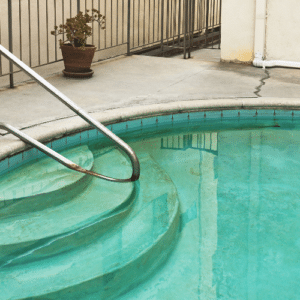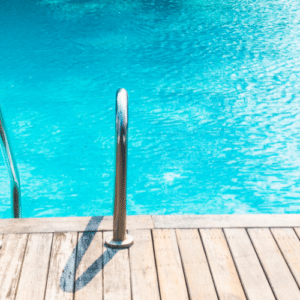Why You Should Get A Swimming Pool & Other FHA Inspections
Getting a loan through the Federal Housing Administration (FHA) is an excellent way for first-time homebuyers to lower their down payment so they can afford to buy a house. When you get an FHA loan, the home you want to purchase must get an FHA appraisal, and even the swimming pool must meet specific requirements before your loan can be approved.
What is an FHA appraisal? Who pays for it? What are the FHA loan requirements for homes with pools? Do you still need an inspection after getting an FHA appraisal?
At MD Mold Testing, we want to help you get into the home of your dreams – safely – so we’ve put together this information about swimming pool FHA inspections to help you out.
Questions? Contact us today.
What Is an FHA Appraisal?
With a traditional home loan, the appraiser primarily determines the home’s current market value. However, an FHA appraiser also does a basic home inspection. While not as detailed as an independent home inspection, the FHA appraiser checks for a variety of things to ensure the home meets minimum standards for health and safety set by the Department of Housing and Urban Development (HUD).
If the FHA appraiser notices things like loose handrails, peeling paint, or other safety issues, the loan is put on hold until the problems are fixed.
At What Point in the Process Do I Get an FHA Appraisal?
The first step of the process is to get conditional approval for an FHA loan. Then, you can get the FHA appraisal. This prevents you from spending money on an FHA appraisal only to find out you can’t qualify for the loan.
Who Pays for an FHA Appraisal?
Typically, the lender orders the FHA appraisal, and the potential buyer pays for it – usually around $300-500, although costs will vary depending on a variety of factors, including:
- Location and property type of the home
- Whether the home has a lot of damage
- The home’s square footage
- How much land is included
What Are FHA Loan Requirements for Homes With Swimming Pools?
Swimming pool FHA inspectors have a list of standards the home’s pool must comply with. The pool must be filled sufficiently for the pump to circulate water and to check for leaks. The inspector must ensure the pool’s pump can circulate well enough to meet property standards.
Some of the FHA pool requirements include:
- The appraiser must report “readily observable defects” that may make the pool unusable
- A pool with unstable sides or other structural issues must be “repaired or permanently filled in” before the sale can go through
- The pool should add to the home’s value by being usable and not be a liability due to problems that prevent it from being used
- “Aesthetically unappealing” algae does not need to be cleaned as long as the pool is not otherwise contaminated
What the FHA Requires Gets Repaired Before a Sale Is Finalized
Serious structural problems and safety hazards must be fixed before an FHA sale is finalized. Some of these problems include:
- Worn or leaky roofs
- Defective paint surfaces in homes built before 1978
- Standing water against the home’s foundation
- Excessively damp basements
- Faulty plumbing, heating, or electrical systems
Things You May Not Have to Repair Under the Latest FHA Rules
The FHA is less concerned with minor repairs than it used to be, but it may still vary depending on the inspector. Things that may or may not need to be repaired include:
- Defective paint surfaces in homes built after 1978
- Minor plumbing leaks
- Defective floor finishes
The experienced inspectors at MD Mold can let you know what is likely to need repairing before the purchase can go through.
FHA Requirements Regarding Appliances
While properties financed through the FHA are required to have a cooking area, there are no requirements about how food should be stored or cooked, meaning kitchen appliances aren’t required. However, if the appliances are included in the home’s sale, they must be in proper working order.
What Happens After the Appraisal?
If the appraiser decides the home meets safety and soundness standards, your lender can close on your loan and you’re well on your way to becoming a homeowner. If the appraiser notes minor issues, the seller will likely make the changes before the appraiser does their final inspection.
If the FHA appraiser finds serious damage or hazardous conditions, you may prefer to look for a different property rather than waiting for the seller to fix all the problems before the buying process can continue.
Do I Still Need an Independent Home Inspection?
While you won’t be required to have an independent home inspection after the FHA appraisal, we highly recommend having one done because it’s much more detailed. After all, you want to know about every potential problem before it becomes your responsibility.
The FHA loan process even includes signing a disclosure statement saying you understand the importance of getting an independent home inspection. The relatively small expense of an independent home inspection could save you a ton of money down the road if it turns up potentially expensive problems you were unaware of.
Schedule a Swimming Pool FHA Inspection Today
If you live in the Washington, D.C., Maryland, Virginia, or Delaware area, contact MD Mold Testing today to schedule your FHA swimming pool inspection. Our experienced inspectors will ensure you don’t get left high and dry on your FHA loan due to problems with the pool of the home you want to purchase.








